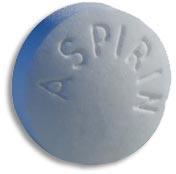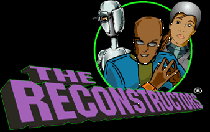| (insert your NIE or newspaper logo here) | Weekly Online LessonOnline Lesson ArchiveGrade Level: 6-8
|
Relieving Pain
 Over the last few weeks, in February, 2005, a number of big insurance
companies said they would begin offering prescription drug coverage
to Medicare beneficiaries next year.
Over the last few weeks, in February, 2005, a number of big insurance
companies said they would begin offering prescription drug coverage
to Medicare beneficiaries next year.
This change will help patients, especially the elderly, cover the high costs of prescription drugs in the United States. Lately, many patients had been looking to Canadian pharmacies for more affordable medicines.
But patients must balance more than just monetary expense when it comes to choosing pain relievers and other medicines - they must also balance the risk of side effects these drugs can cause.
Side effects may include a higher risk of heart attacks, nausea, dizziness, addiction, and tissue damage to vital organs.
In September, 2004, for example, a popular prescription pain reliever - Vioxx, was pulled from pharmacy shelves when it became linked to an elevated risk of heart attacks and strokes.
Since then, a rising number of patients - like those suffering from severe arthritis - have been searching for adequate relief using other options, including acupuncture, herbal remedies, or over-the-counter pain relievers, such as ibuprofen.
The search for relief from pain and illness has been going on for centuries, as you'll soon discover during this week's lesson.
First, you'll travel into the future to join a group called the Reconstructors, to reconstruct medical knowledge and investigate the lost secrets of pain relievers - and their side effects. Later, you'll take a journey as a patient to uncover the evolution in medical diagnoses and treatment through time.
Recontructing Pain Relief
 Transport to the year 2252, and join The
Reconstructors team to investigate A
Plaguing Problem.
Transport to the year 2252, and join The
Reconstructors team to investigate A
Plaguing Problem.
Begin by launching Episode 1, enter your name, and continue following Alpha's instructions and the flashing icons along the way.
What's the difference between an analgesic and an anesthetic? What important clues did you find in Egypt? Why was saline used in the lab tests? How did the rats react to the various substances, and how did the data affect your conclusions?
Now, move on to Episode 2: Ancient Alarm.
What flower is the source of the most potent pain reliever you tested? How does it compare to willow extract? In what ways did the flower's use affect China?
 In Episode
3: Analgesic Anxiety, you'll discover how early pain relievers
caused addiction and severe side effects.
In Episode
3: Analgesic Anxiety, you'll discover how early pain relievers
caused addiction and severe side effects.
Why do you think doctors would have treated their patients with these drugs at the time? How exactly do the drugs relieve pain? What are the three steps of pain treatment? What are alkaloids? Did the chromatograph of opium match the hot plate test results?
Episode 4: Mystery of the Morpheus will shed some light on how opium works in the body. How can electricity and chemicals affect the heartbeat rate? What exactly are neurotransmitters? What happens when endorphins are produced? How does morphine block pain?
Next, explore Episode 5: Opiates and Opinions. In what way was OxyContin a better pain reliever choice over morphine? How can it and other opiate products lead to addiction? Under what circumstances can the side effects be minimized or acceptable? In what ways can both doctors and patients help to curb addiction?
Treating Patients
 Prescription drugs are regulated by the government
and must be authorized by a licensed doctor. So how does a doctor decide
what kind of treatment a patient should receive?
Prescription drugs are regulated by the government
and must be authorized by a licensed doctor. So how does a doctor decide
what kind of treatment a patient should receive?
To get some insight, let's visit with Survivor M.D.
Your first assignment is to review the Hippocratic Oath, both the classical version and the modern version.
In what ways are the two versions similar to each other? How are they different? Do you think this oath influences how a doctor treats a patient?
Now, let's take a trip to explore Medicine Through Time. Travel through the three time periods to discover what treatments you would face as a patient in 1900, 1950, and 2000. Experience every scenario, if you have time.
How did the methods of examination, diagnosis, treatment, and prognosis compare between the different years? Under what circumstances were drugs or other types of medicines used?
Newspaper Activities
Browse current issues of The Salt Lake Tribune and look for stories about medicines, including prescription and over-the-counter drugs. Has a new drug just been released onto the market? If so, what's its primary use? If a drug has been pulled from the shelf, what reasons led to its recall? If you find any articles about different types of medicine or medical care, such as herbal or homeopathic remedies, how do they compare to mainstream medicines that treat similar symptoms, including any side effects they may produce?
© Copyright 2005
Learners
Online, Inc.
